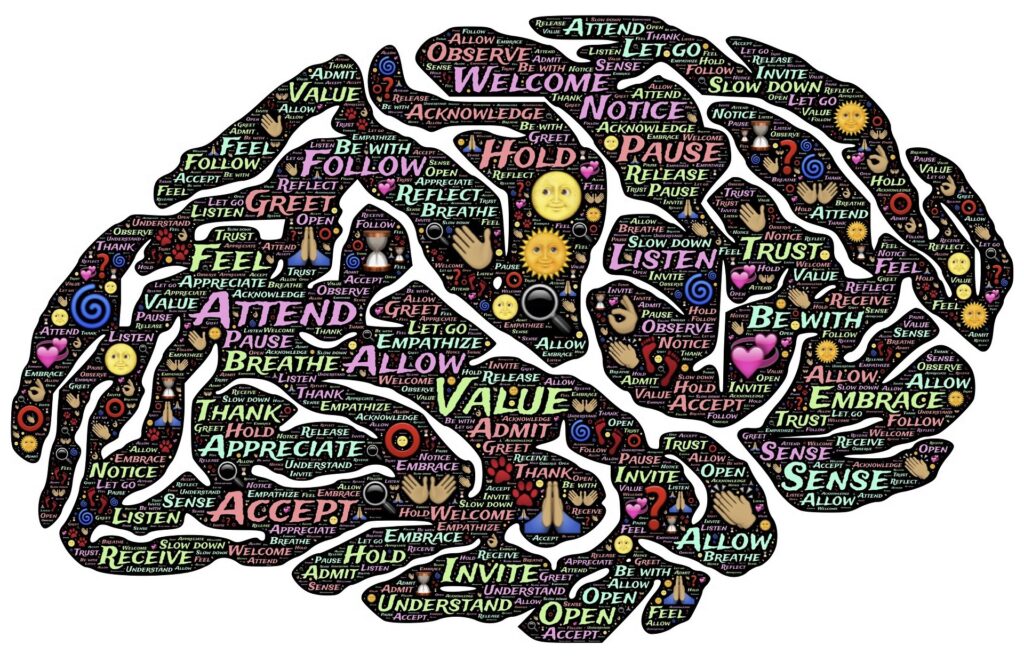Mindfulness Techniques for Well-being – In today’s fast-paced world, finding moments of calm and clarity has become essential for overall well-being. Mindfulness, rooted in ancient practices, offers a pathway to achieve this balance. It involves being fully present in the moment, acknowledging thoughts and sensations without judgment.

Mindfulness Techniques
Breathing Exercises
One of the fundamental mindfulness practices involves focusing on the breath. Taking deep, intentional breaths helps in grounding oneself and reducing stress. Try techniques like box breathing or 4-7-8 breathing for instant relaxation.
Body Scan Meditation
This technique involves mentally scanning the body from head to toe, noticing any tension or sensations. By bringing awareness to different body parts, one can release stress and promote relaxation.
Mindful Eating
Mindful eating encourages paying attention to the sensations, flavors, and textures of food. By savoring each bite and eating slowly, one can cultivate a deeper connection with food and prevent overeating.
Grounding Techniques
Grounding exercises anchor individuals to the present moment. Techniques such as focusing on surroundings or using senses like touch or smell help in reducing anxiety and enhancing focus.
Benefits of Mindfulness for Well-being
Practicing mindfulness regularly yields numerous benefits for overall well-being. It significantly reduces stress levels, promotes mental clarity, and aids in emotional regulation. By fostering a sense of awareness, individuals become more adept at managing challenging situations.
Incorporating Mindfulness into Daily Life
Morning Routines
Starting the day with a brief mindfulness practice sets a positive tone. Simple activities like stretching, mindful breathing, or setting intentions for the day can make a significant difference.
Mindful Practices during the Day
Incorporating short mindfulness breaks amidst a busy schedule can be transformative. Whether it’s a brief breathing exercise or a mindful walk, these moments allow for rejuvenation and clarity.
Evening Rituals
Ending the day with calming practices like meditation or journaling helps in unwinding and preparing for restful sleep. These rituals signal the mind and body to relax, promoting better sleep quality.
Challenges and Tips for Practicing Mindfulness
Overcoming Distractions
Mindfulness practice can be challenging amidst distractions. Implementing techniques like guided meditations or focusing on a specific object can help anchor attention.
Persistence in Practice
Consistency is key in mindfulness. Despite initial challenges, perseverance in practice enhances its effectiveness over time. Starting small and gradually increasing practice duration can be helpful.
Finding What Works Best
Mindfulness is a personal journey, and different techniques resonate with different individuals. Exploring various practices helps in finding what suits one’s preferences and lifestyle.
Conclusion
Mindfulness isn’t just a practice; it’s a way of living. By embracing mindfulness techniques, individuals can nurture their mental and emotional well-being, fostering resilience and a deeper connection with themselves and the world around them.
FAQs
- Is mindfulness only about meditation?
- Mindfulness encompasses various practices beyond meditation, such as breathing exercises, body scan, and mindful activities.
- How long does it take to experience benefits from mindfulness?
- Benefits can be felt immediately, but consistent practice over time enhances its impact on well-being.
- Can mindfulness help with anxiety and stress?
- Yes, mindfulness techniques are known to reduce anxiety and stress levels by promoting relaxation and awareness.
- Is mindfulness a religious practice?
- While its roots are in ancient traditions, mindfulness itself isn’t tied to any specific religion. It’s a practice accessible to all.
- Can children practice mindfulness?
- Absolutely! Mindfulness techniques can be adapted for children, promoting emotional regulation and focus.




